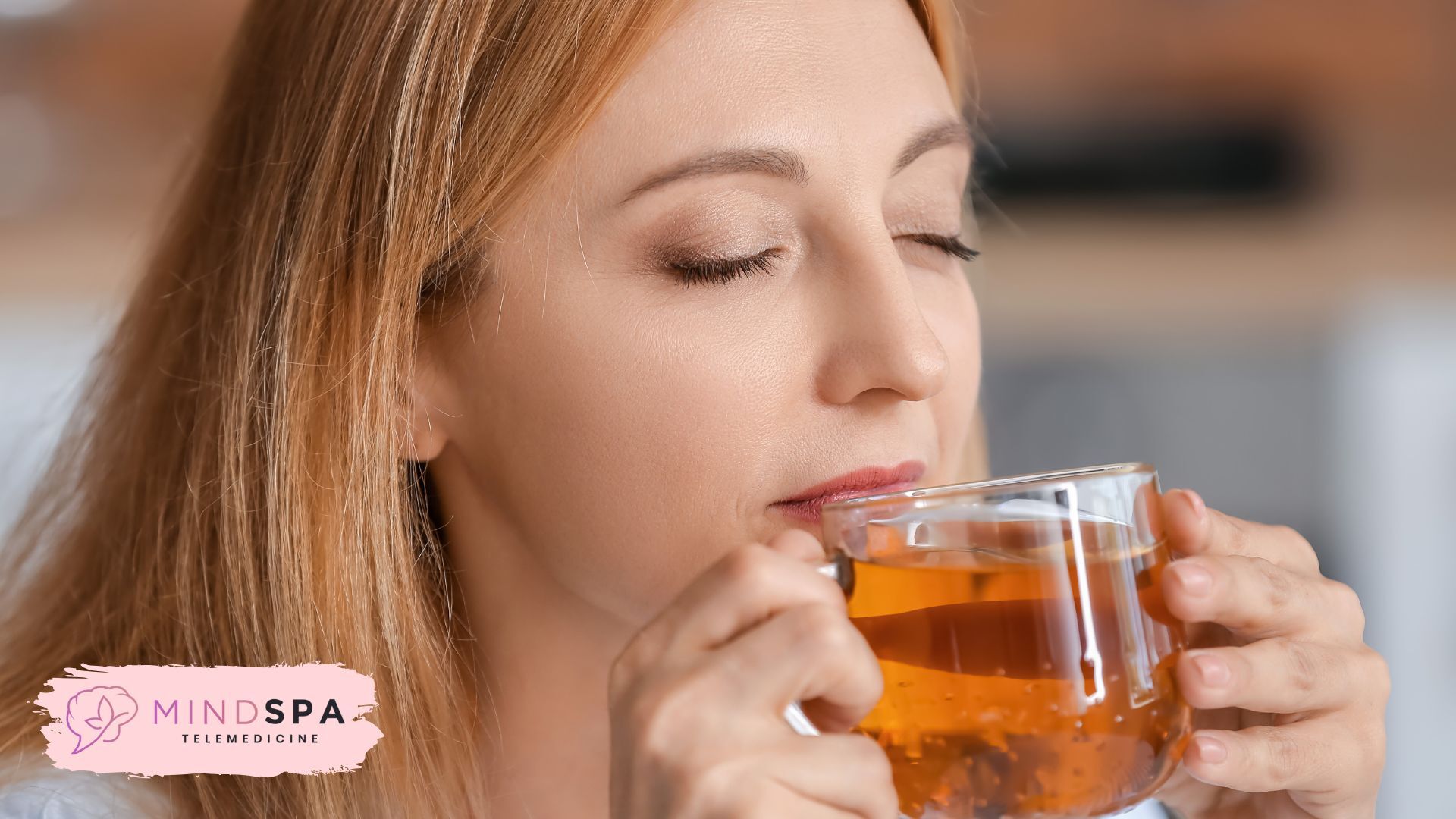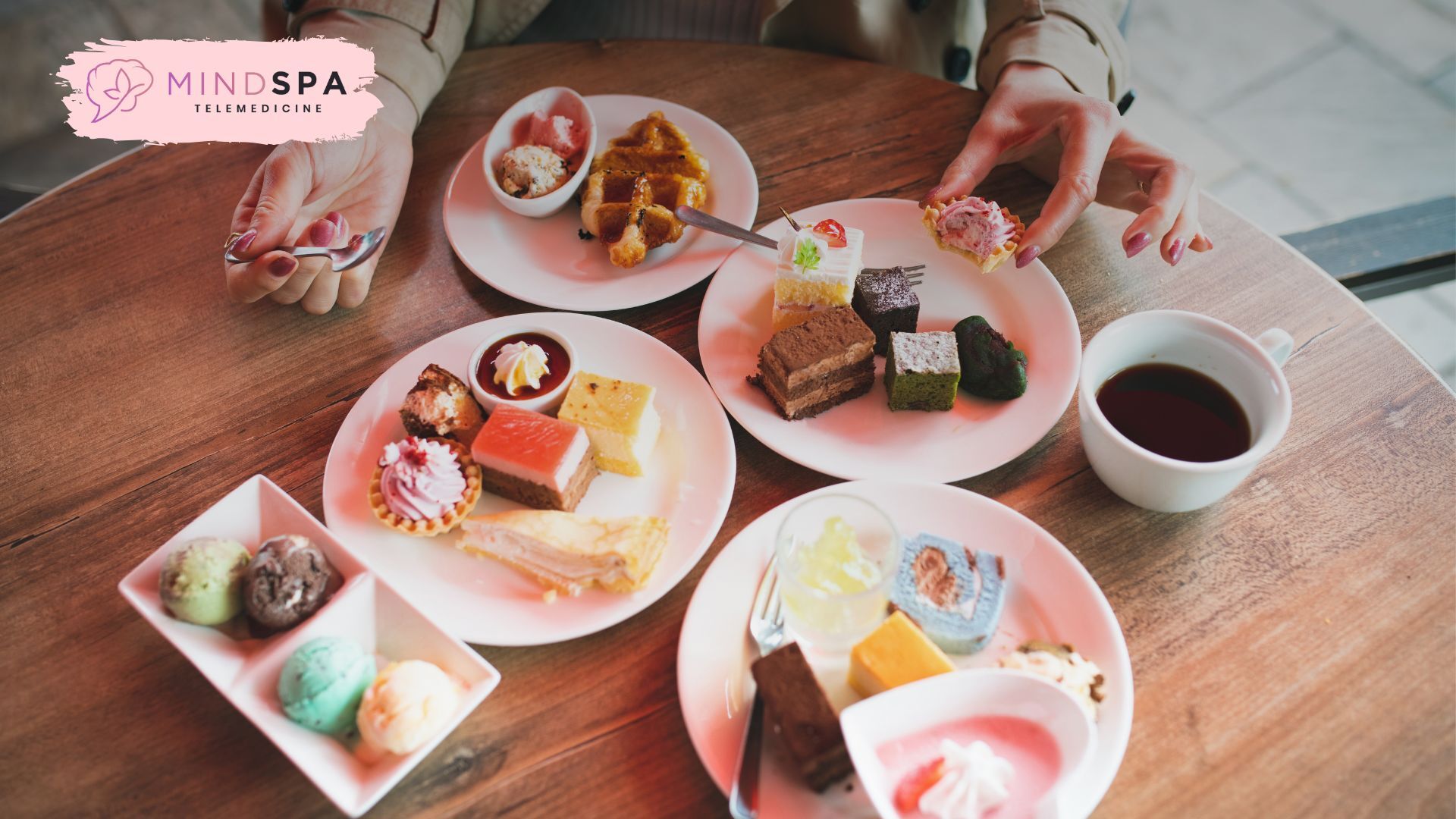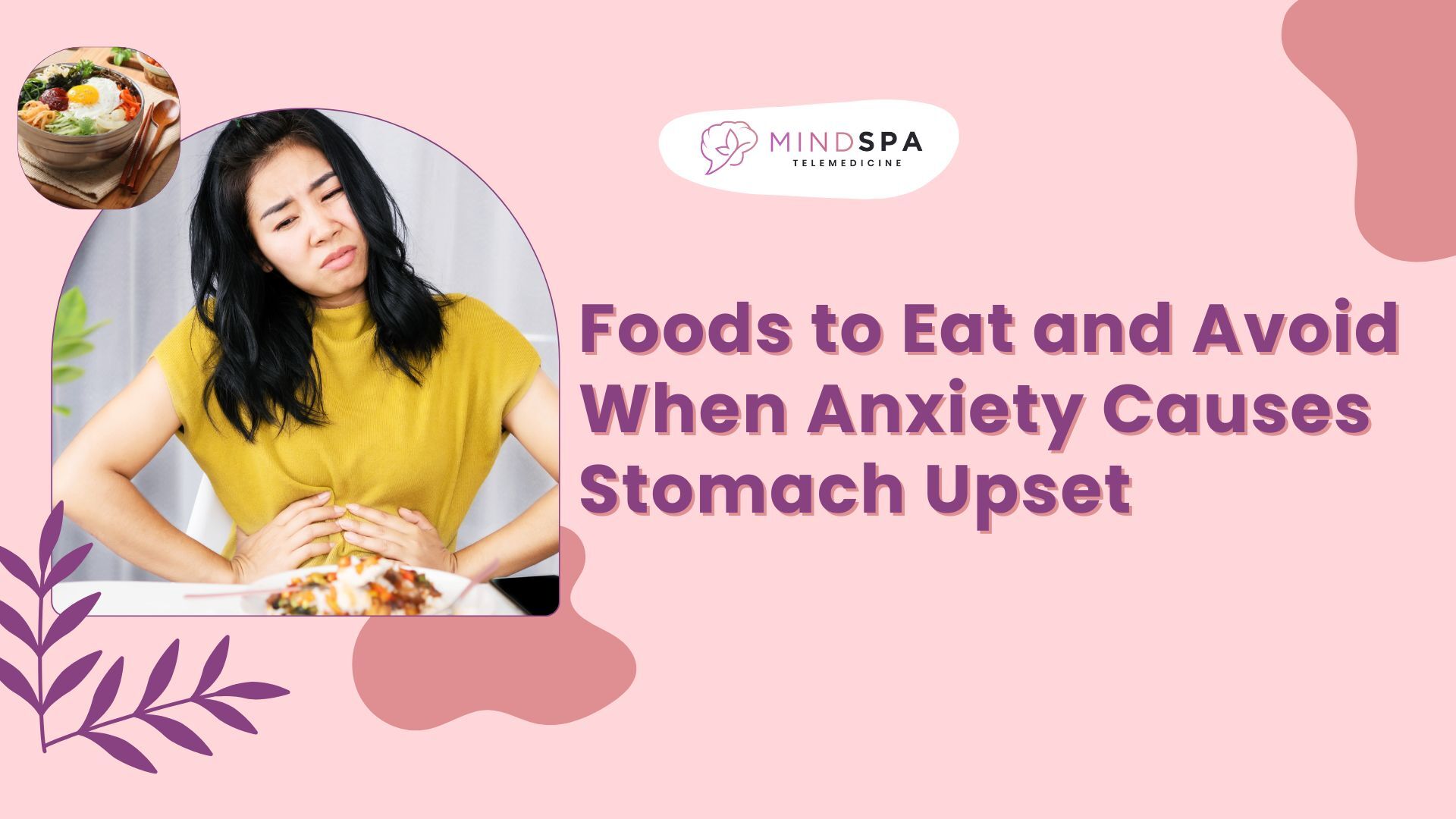Anxiety, worry, and stress can cause stomach upset and other gastrointestinal symptoms. When you are anxious, certain chemicals and hormones are released by your body, which go into your digestive tract and affect digestion. Anxiety affects millions of people around the world, and the symptoms vary between people.
To treat anxiety, experts at Mindspa Psychiatry create personalized treatments that align with your goals and unique needs. Usually, they recommend treatments like talk therapy, medication, and holistic approaches such as stress management and relaxation techniques and medication management.
However, in recent years, research suggests that the right nutrition might improve anxiety symptoms. In this blog, we will explore foods to eat and avoid when anxiety causes stomach upset so individuals can properly understand the role of nutrition and foods in anxiety and stomach upset.

Foods to Eat When Anxiety Causes Stomach Upset
Certain foods might help support brain function and reduce the severity of anxiety symptoms. This is because most of these foods have brain-boosting properties. Below, we will explore some foods that might help reduce anxiety.
1. Dark chocolate
According to research, dark chocolate might help reduce anxiety and stress. Experts discovered that cocoa or dark chocolate might enhance mood through the gut-brain connection. However, many of the current studies regarding this subject are still observations.
Therefore, caution is required to interpret these results. Although there is still vagueness on how dark chocolate might improve stress or mood, dark chocolate has a high level of polyphenols, particularly flavonoids.
In a study, experts suggest that flavonoids may lower cell death and neuroinflammation in the brain and also increase blood flow. Chocolate is very rich in tryptophan, which the body uses to turn into mood-improving neurotransmitters like serotonin in the brain.
Additionally, dark chocolate also provides magnesium, and eating diets or supplements having enough magnesium inside or taking supplements might lower symptoms of anxiety and stress. When considering taking dark chocolate, choose those with 70% cacao or more.
2. Chamomile
Chamomile tea is commonly used by people around the globe due to its anti-inflammatory relaxant, antioxidant, and antibacterial properties. Many individuals believe that the antianxiety and relaxant properties come from the flavonoids found in chamomile.
In a study, excerpts found that taking 1,500 mg of chamomile extract every day reduced symptoms of anxiety. But this didn’t stop new episodes of anxiety. Therefore, chamomile tea might be used in managing anxiety and is safe for use in high doses.
3. Yogurt
Healthy bacteria Bifidobacteria and Lactobacillus can be found in yogurt. Recent research suggests that these healthy bacteria and fermented products have a positive effect on brain health.
In a clinical review, experts found that yogurt and other dairy products might produce anti-inflammatory effects on the body. Another research suggested that chronic inflammation might be partly responsible for anxiety, depression, and stress.
Another study found that fermented foods can lower social anxiety in some young people, while several studies found that eating healthy bacteria enhances happiness in some people. Therefore, adding yogurt and other fermented foods into your diet can benefit the natural gut bacteria and lower stress and anxiety.
4. Green tea
The amino acid in green tea is called theanine, and it has been the subject of much investigation due to its potential impact on mood disorders. The camping and anti-anxiety effects of theanine might help increase the production of dopamine and serotonin.
In a review, researchers found out that 200 mg of theanine enhanced self-reported calmness and relaxation and reduced tension in human trials. You can easily add green tea to your daily diet. It is best as a replacement for alcoholic drinks, coffee, and soft drinks.

Foods to Avoid When Anxiety Causes Stomach Upset
Some foods can make anxiety-induced stomach problems worse. Consider avoiding the following foods:
1. Caffeine
Caffeine like energy drinks and coffee enhance stomach acid production and might slow down gastric emptying. What this means is that it might lower the speed at which food moves through the digestive systems, which may result in symptoms such as stomach pain, vomiting, nausea, and bloating.
Excessive caffeine might enhance anxiety and result in diarrhea, which can worsen the symptoms.
2. Spicy foods
When you consume spicy foods excessively, it can cause diarrhea, heartburn and abdominal pain in some individuals. It can make your anxious stomach feel worse, due to capsaicin, a substance that can irritate and damage the intestine lining. Patients with inflammatory bowel disease and IBS often experience severe symptoms.
3. Alcohol
When you consume alcohol in large amounts and chronically, it has many negative effects on the gastrointestinal tract. Additionally, it causes heartburn by affecting the muscles that separate the esophagus from the stomach.
It can also increase gastric acid secretion, which results in inflammation and irritation. Alcohol also affects the microbiome and causes digestive symptoms such as irregular bowel movements and diarrhea.
4. Dairy products
Dairy products such as ice cream, cheese, and milk can cause diarrhea, stomach pain, and nausea in people with lactose malabsorption or lactose intolerance (issues digesting lactose).
Lactose, as a kind of milk sugar or carbohydrate, needs an enzyme known as lactase to be broken down. While growing, lactase production reduces. According to estimates, about 68% of the global populace experience lactose malabsorption (problems breaking down lactose).
5. Excess sugar
Excess sugar or artificial sweeteners found in processed soda and foods can cause digestive problems such as diarrhea and bowel movements when consumed.
Studies show that artificial and natural sweeteners can cause an imbalance in the gut microbiome, adding to these problems. Therefore, avoiding these sweeteners can spare your stomach during anxious or stressful periods.

Conclusion
In some people, stomach upset caused by anxiety is common. Often, this state is due to your mental or emotional state, your gut or digestive health, or even a combination of both. Sometimes, it might be a signal of something more serious. In such cases, it is best to seek counsel and treatment of anxiety from experts such as Mindspa Psychiatry. If you intend to learn more about foods to eat and avoid when anxiety causes stomach upset, this website has all the information you require.
Related Questions
1. How can I know my stomach problems are caused by anxiety?
When stomach issues are triggered, if you feel anxious and it does not last more than some hours, it might be related to anxiety. When the abdominal pain becomes intense, lasts more than some hours, or comes with vomiting or bloody stooling, then consult with a health professional.
2. How can I stop anxiety from affecting my stomach?
Deep breathing can help resolve anxiety-induced stomach issues. Deep breath can help you activate your parasympathetic nervous system, triggering your digestive and nervous system to find a balance. If you experience a nervous stomach, then stop whatever you’re doing and take deep and big breaths in and out.


